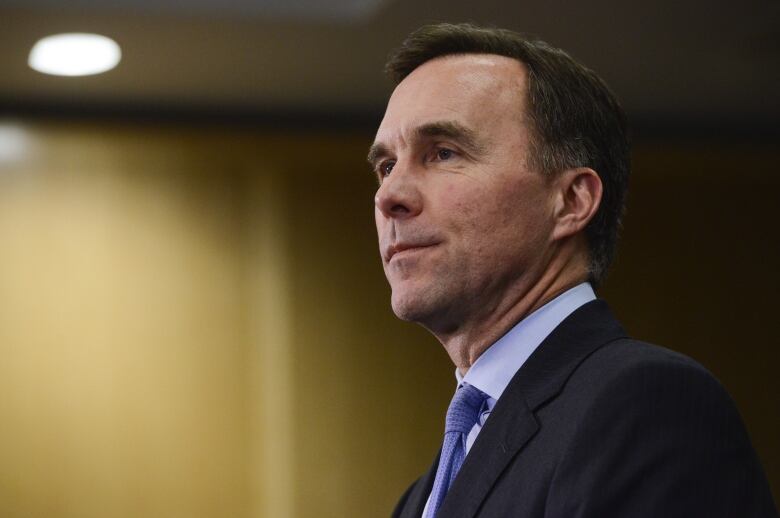Travellers from Iran asked to self-isolate for 14 days after arriving in Canada
Several new cases of COVID-19 traced to Iran, Public Health Agency of Canada says

Travellers arriving in Canada from Iran will be asked to self-isolate for two weeks to prevent the spread of COVID-19, the respiratory illness caused by the new coronavirus.
Chief Public Health Officer Dr. Theresa Tam said the new measure is being imposedbecause new cases confirmed in Canada have been traced to travel in Iran, a pattern she called "very concerning."
During a teleconference with reporters Monday, Tam said travellers arriving in Canada will be asked to tell officials at the airport whether they're comingfrom Iran. Those coming from Iran will be asked to report any symptoms that may be linked to the virus, or to self-isolate for 14 days if they are asymptomatic.
The same protocol has been in place for travellers arriving from Hubei, China, which is the epicentre of the outbreak.
Tam said the new screening measures targeting travellers from Iran are based on a risk assessment which considers the rapidly increasing number of cases in Iran involving transmission through communities. She said she could not immediately say how many cases in Canada were traced to Iran.
But there is no plan at this point to impose any travel restrictions or bans, Tam said.
"Viruses know no borders and we have to balance our public health measures knowing that they are never completely perfect," she said.
"There are downsides as well as effectiveness. I've always also said that as the number of countries increases, border measures are less effective and less feasible. So trying to focus on one country versus another can be much less reasonable as an approach, or effective."
27 confirmed cases in Canada
The Public Health Agency of Canada says the risk in Canada associated with COVID-19 remains low.
There are now 27 cases of COVID-19 in Canada. Ontario reported three new cases of the novel coronavirus Monday, bringing thetotal in the province to 18.
There are also eight confirmed cases in B.C. and one in Quebec.
Tam said federal officials are working with the provinces on measures to fight the spread of the virus, which could include advice to cancel public gatherings or close schools or workplaces.
She has encouraged Canadians to make arrangements to cope with a COVID-19 illness in the household, such as child care and supplies of food and medication.
"Canadians have time to be prepared and they should use that time and be essentially sensible about the whole thing," she said. "There's no need to go at it in a massive rush right now, but I think having some time for people to get prepared means that the suppliers will be able to cope with that requirement in an easier way."
Heightened travel advisories
On Monday, Global Affairs Canada heightened travel advisories with three updates. GAC advises people toavoid non-essential travel to northern Italy, specifically the regions of Aosta Valley, Piedmont, Liguria, Lombardy, Emilia-Romagna, Veneto, Friuli-Venezia Giulia and Trentino-Alto Adige.
It also advises travellers to Japan to exercise a high degree of caution and cites the COVID-19 outbreak as further reason to avoid non-essential travel to Iran.
Meanwhile, Finance Minister Bill Morneauplans to join a conference call with his G7 counterparts Tuesdayto discuss the potential economic impact of the COVID-19 outbreak.
The conference is happening in the wake of anOECDreportthat calls the outbreak's economic impact "severe" and warnsthat the global economy now faces its "biggest danger since the financial crisis."
The 2008 financial crisis was considered the deepest economic downturn since the Great Depression.

The OECD report said global economic growth was weak but stabilizing before the outbreakof COVID-19, the respiratory illness caused by the novel coronavirus that originated in Wuhan, China.
"Restrictions on movement of people, goods and services, and containment measures such as factory closures have cut manufacturing and domestic demand sharply in China," reads the report.
"The impact on the rest of the world through business travel and tourism, supply chains, commodities and lower confidence is growing."
The OECD said stalled production, greaterrestrictions on the movement of people, goods and services and lower business and consumer confidence are all dragging down the economy.
Morneau's spokeswoman Mava Proteau said Canada's economy continues to be resilient, despite evolving global and domestic challenges.
"We are closely monitoring economic developments related to the COVID-19 outbreak and other issues such as the rail blockades, including the impacts on businesses, tourism and the energy sector," she said in an email statement.
"As the situation is still very dynamic, it is too early to say exactly what the economic impacts will be. Our government's strong fiscal position means we continue to have all the necessary tools to respond in cases of continued fluctuations in the domestic and global markets. Minister Morneau is in regular discussions with our international partners on this matter."












_(720p).jpg)


 OFFICIAL HD MUSIC VIDEO.jpg)
.jpg)



























































































